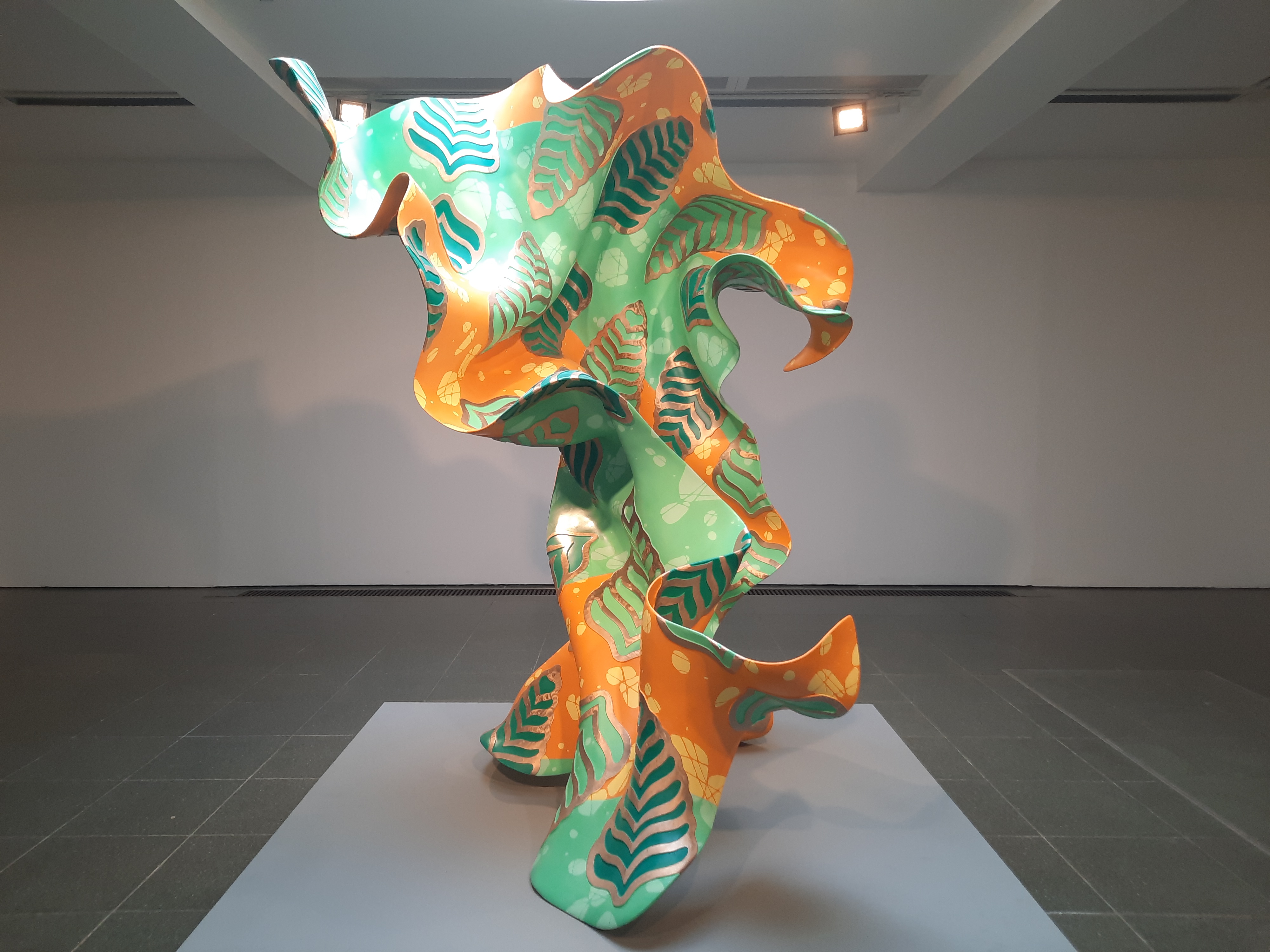Yinka Shonibare CBE: Suspended States – Serpentine Gallery, London
An exhibition at London’s Serpentine Gallery allows a showcase of Shonibare’s distinctive style, if not any new artistic approaches.
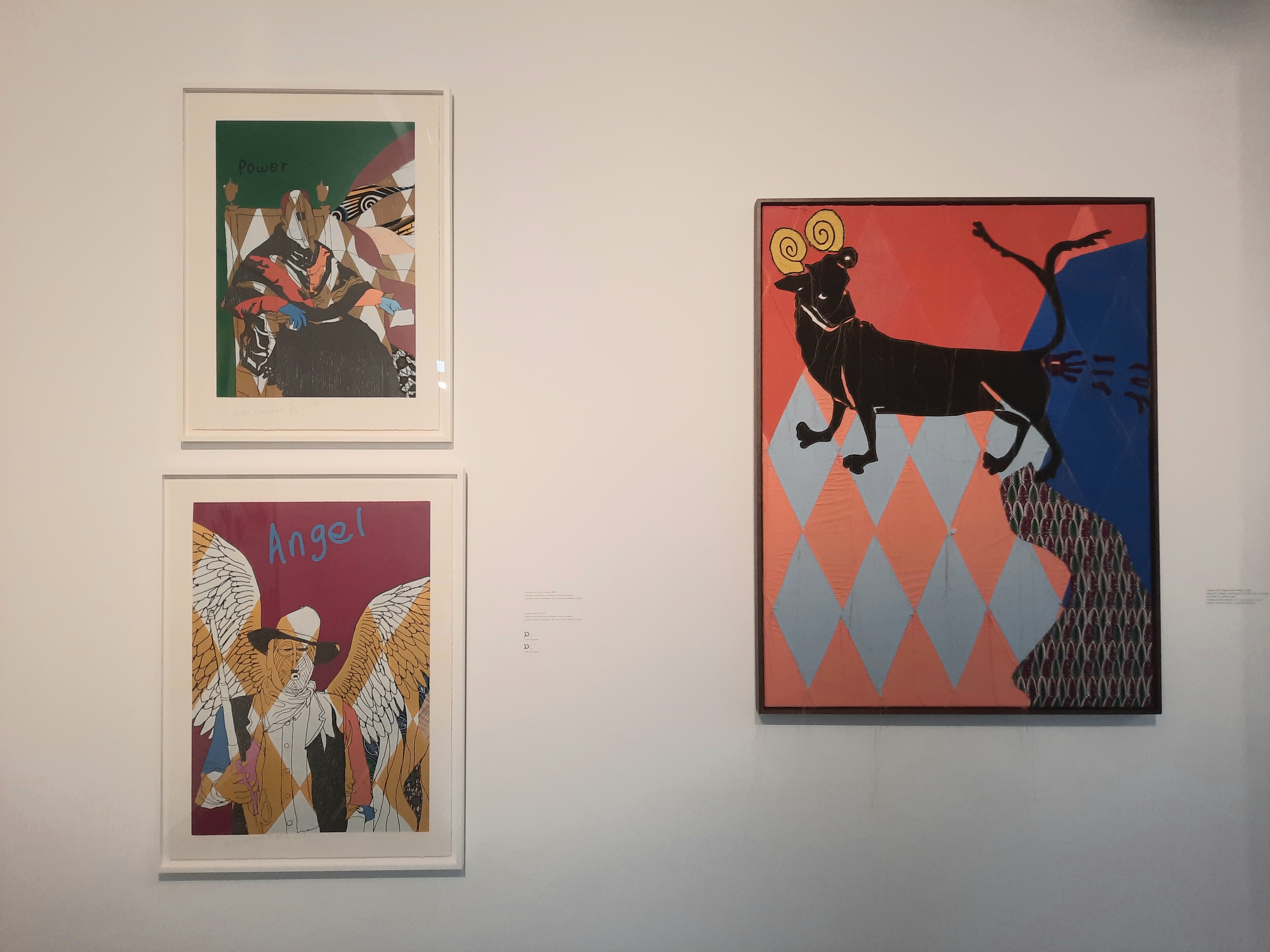
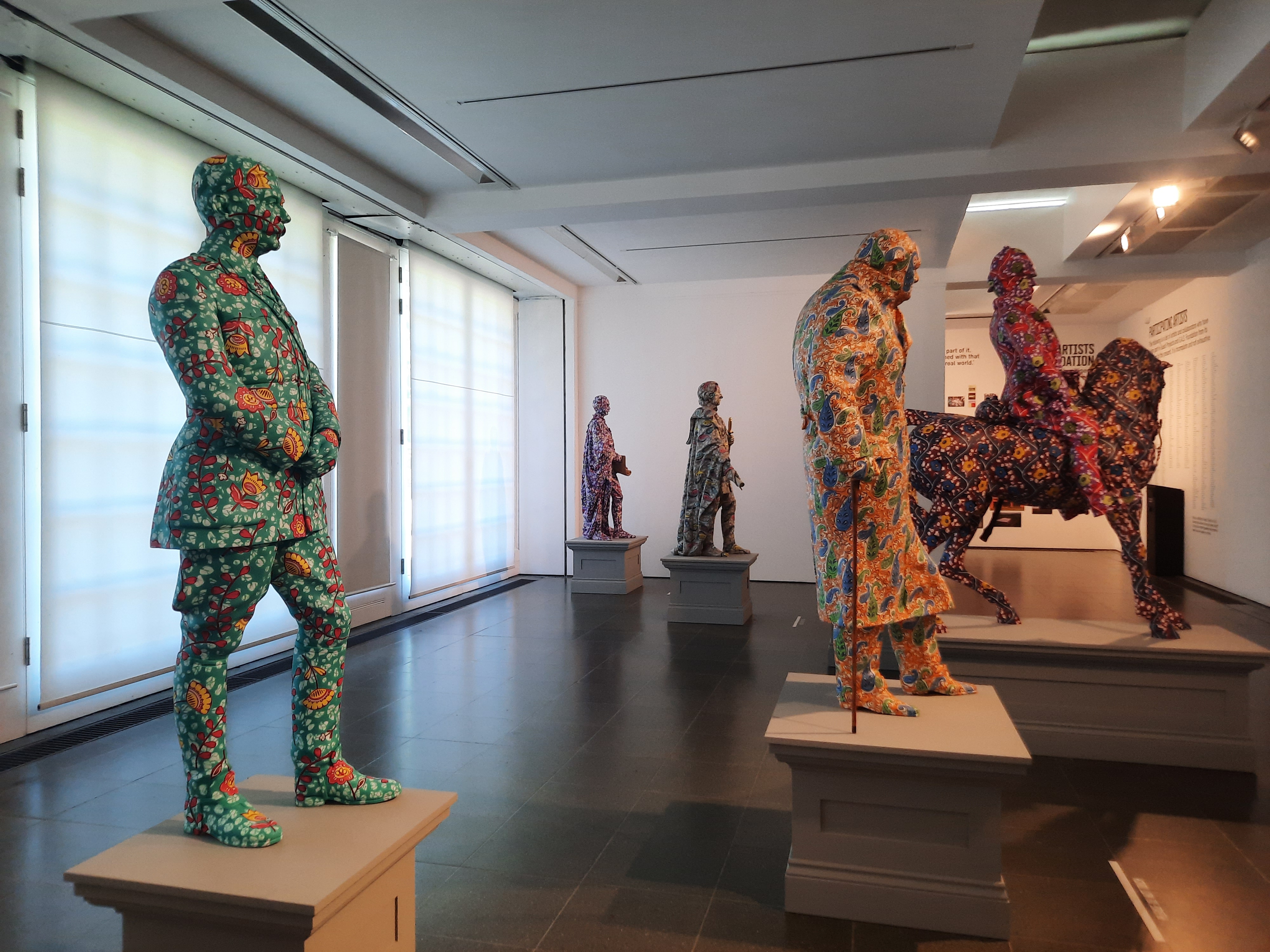
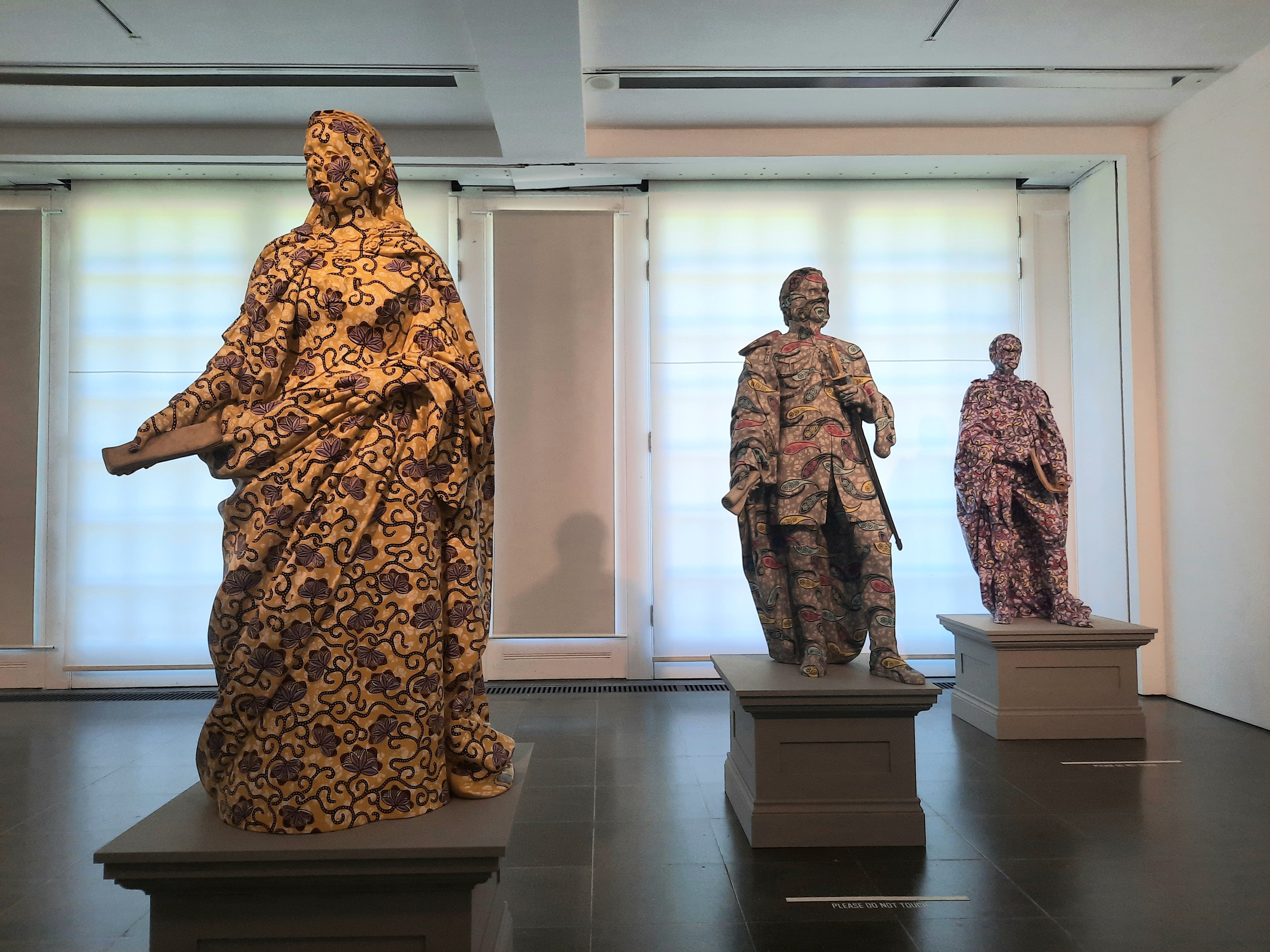
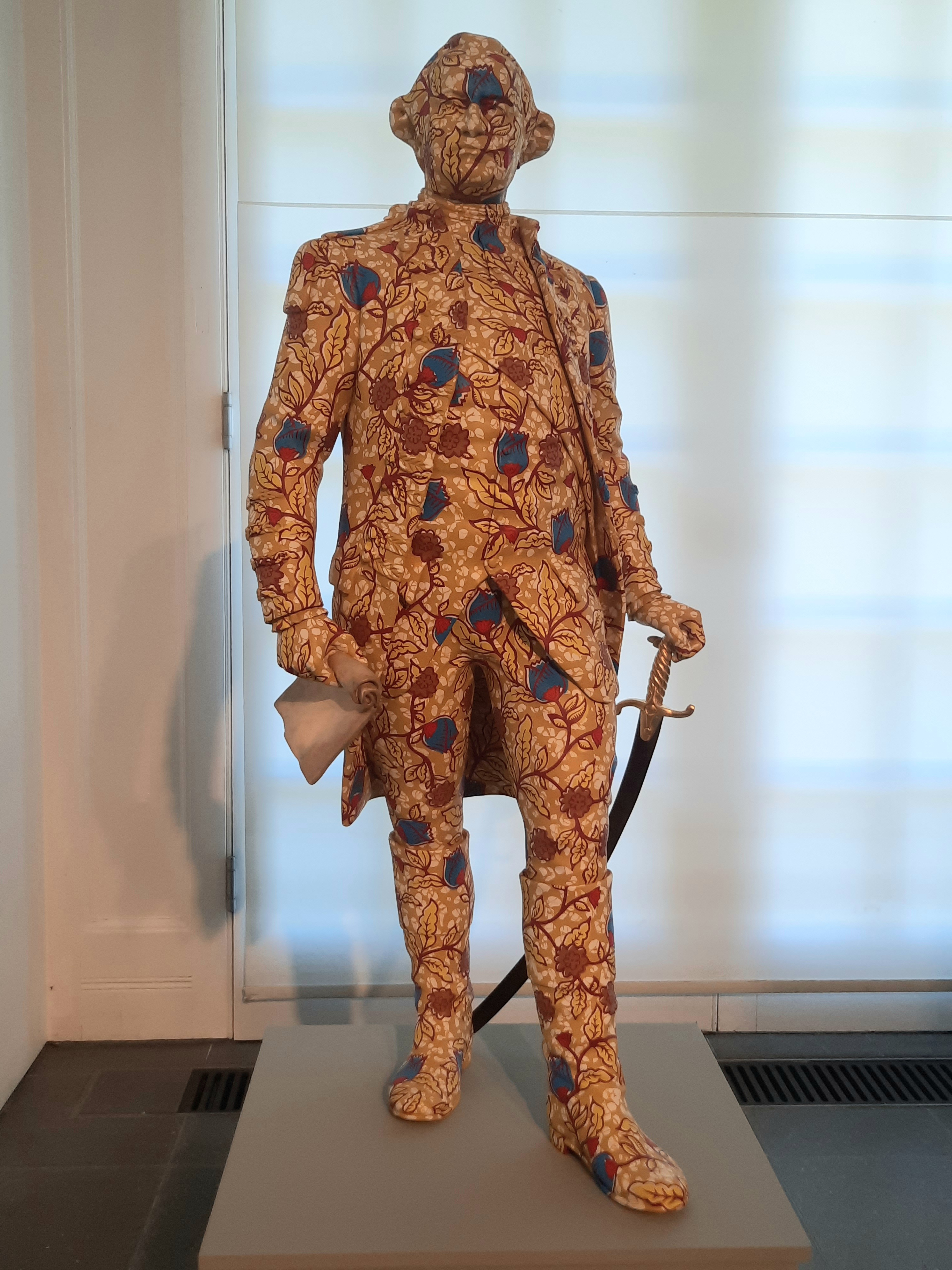
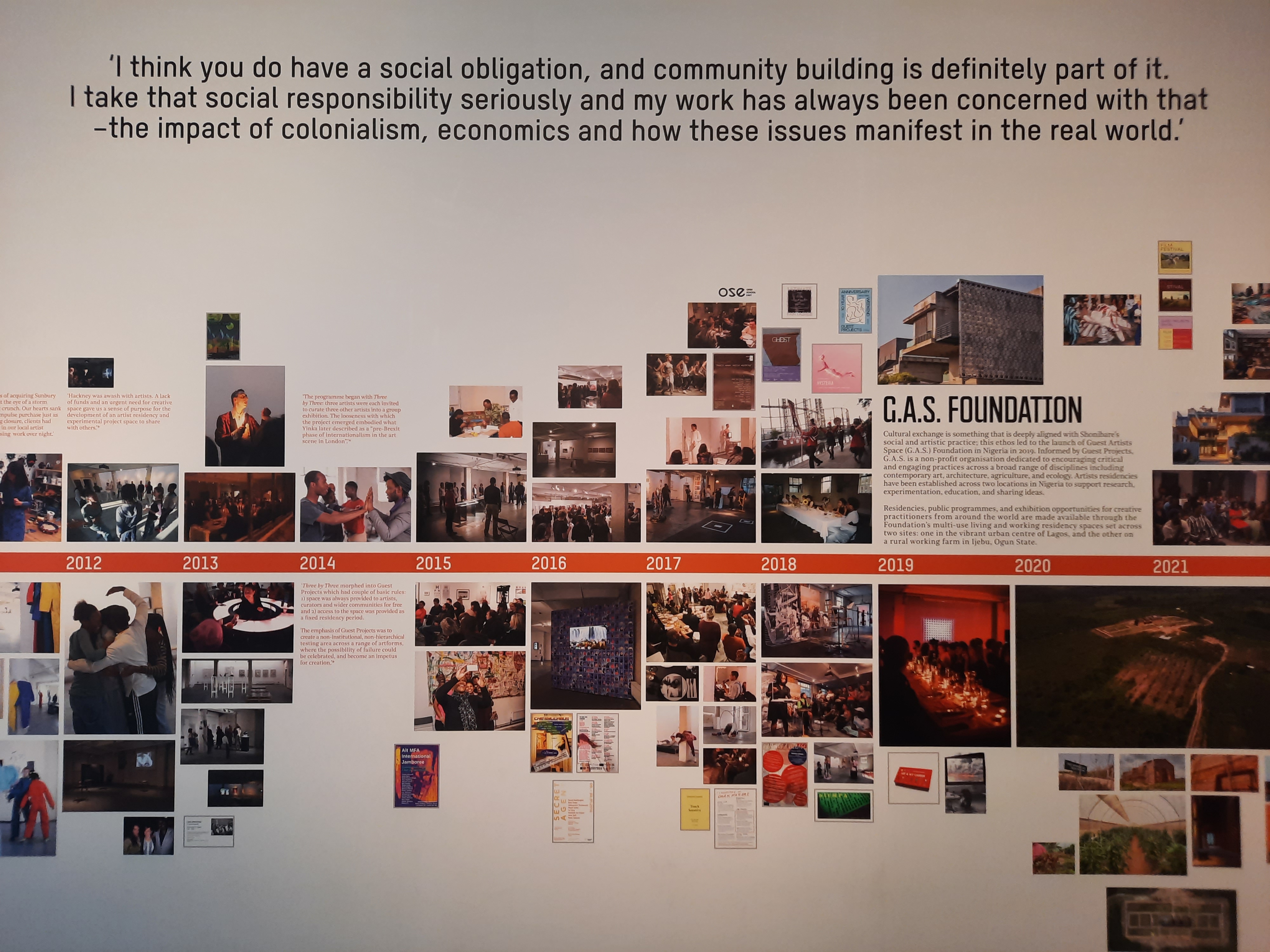
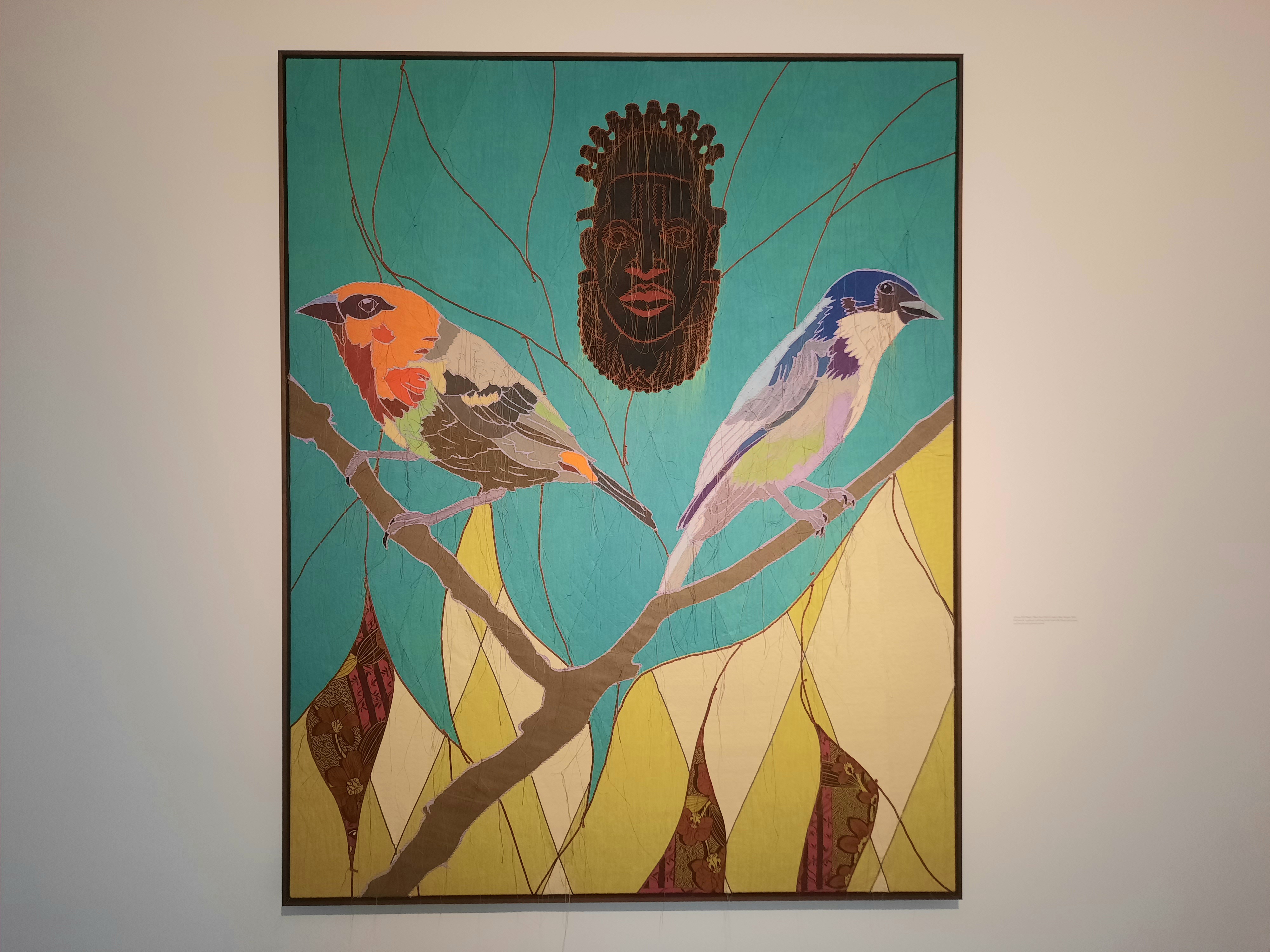
Yinka Shonibare CBE at the Serpentine Gallery
It has really been a long time since I was at the Serpentine Gallery. So long, in fact, that it was part of my Covid Diaries series. And actually, as there is a North and a South gallery at the Serpentine, this is my first visit here. The Serpentine North Gallery, where I previously saw photographs by James Barnor, is currently playing host to Judy Chicago. More on this here.
Today we are here to talk about Yinka Shonibare. Born in London in 1962, Shonibare spent a large part of his childhood in Nigeria. He returned to the UK aged 17 to undertake studies, but contracted transverse myelitis at the age of 18 and became paralysed down one side of his body. He nonetheless graduated from the Byam Shaw School of Art, and from Goldsmiths as part of the YBA generation. Shonibare has exhibited at the Venice Biennale, documenta, has been on the Turner Prize shortlist, and added the CBE to his name in 2019. Because of his disability, Shonibare conceptualises artworks which are executed by a team of assistants. A little bit like a Renaissance master and his studio.
Yinka Shonibare’s works are instantly recognisable to UK audiences. And not just the art lovers, either. For years he has used a motif of bright West African fabrics. They operate as a shorthand for colonial complexity – what seems to be African started as an Indonesian technique which inspired Dutch versions to be produced for the African market. But the point here is that they are also a shorthand for Shonibare’s work. They surface complex histories while also being bright and visually appealing: Shonibare’s work for Trafalgar Square’s Fourth Plinth, a ship in a bottle using Dutch wax fabric designs, was so popular it was purchased mostly through public donations and now lives outside the National Maritime Museum.
That was more than I thought in terms of background! Let’s go take a look at what’s on display at the Serpentine.
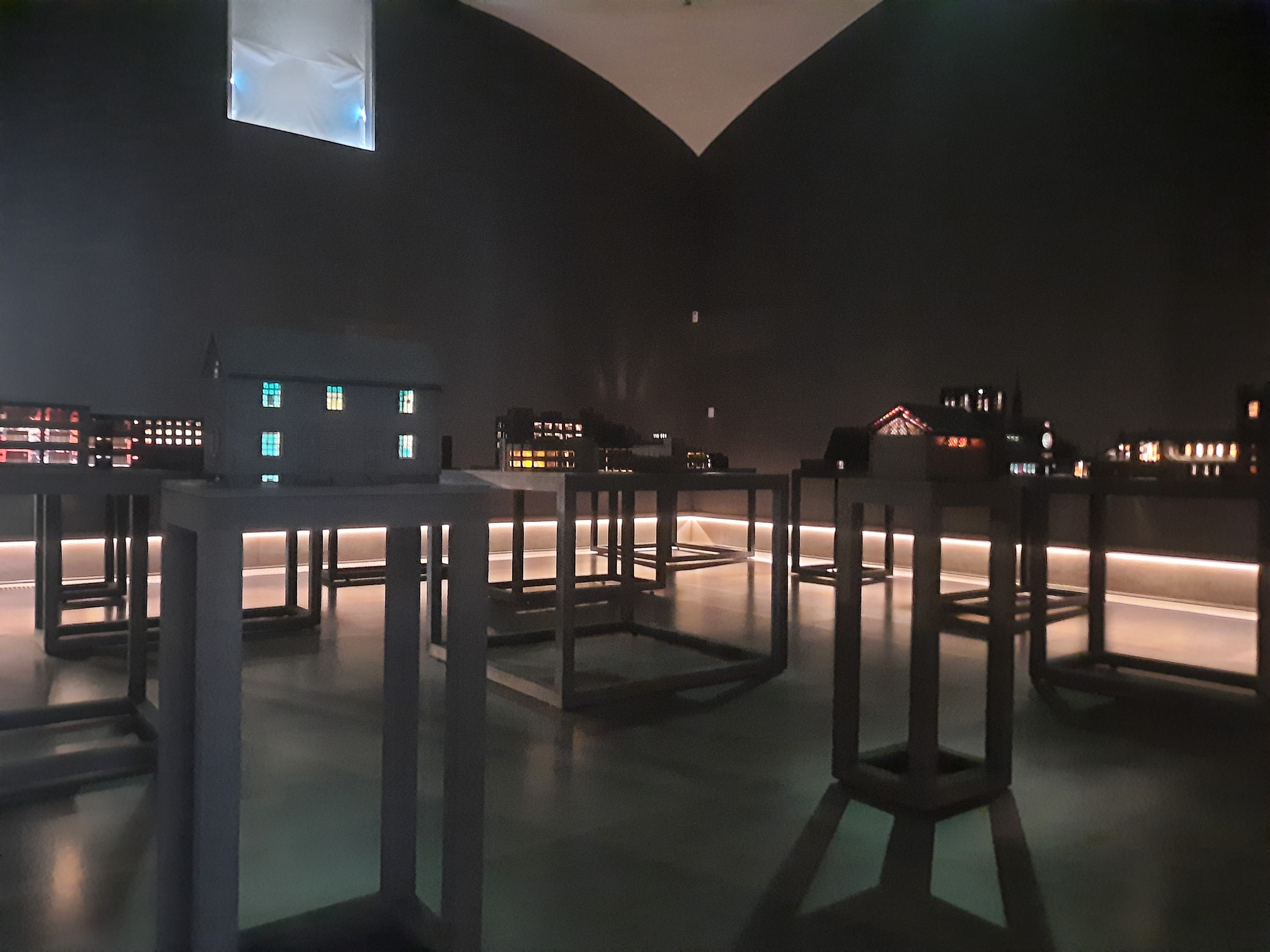
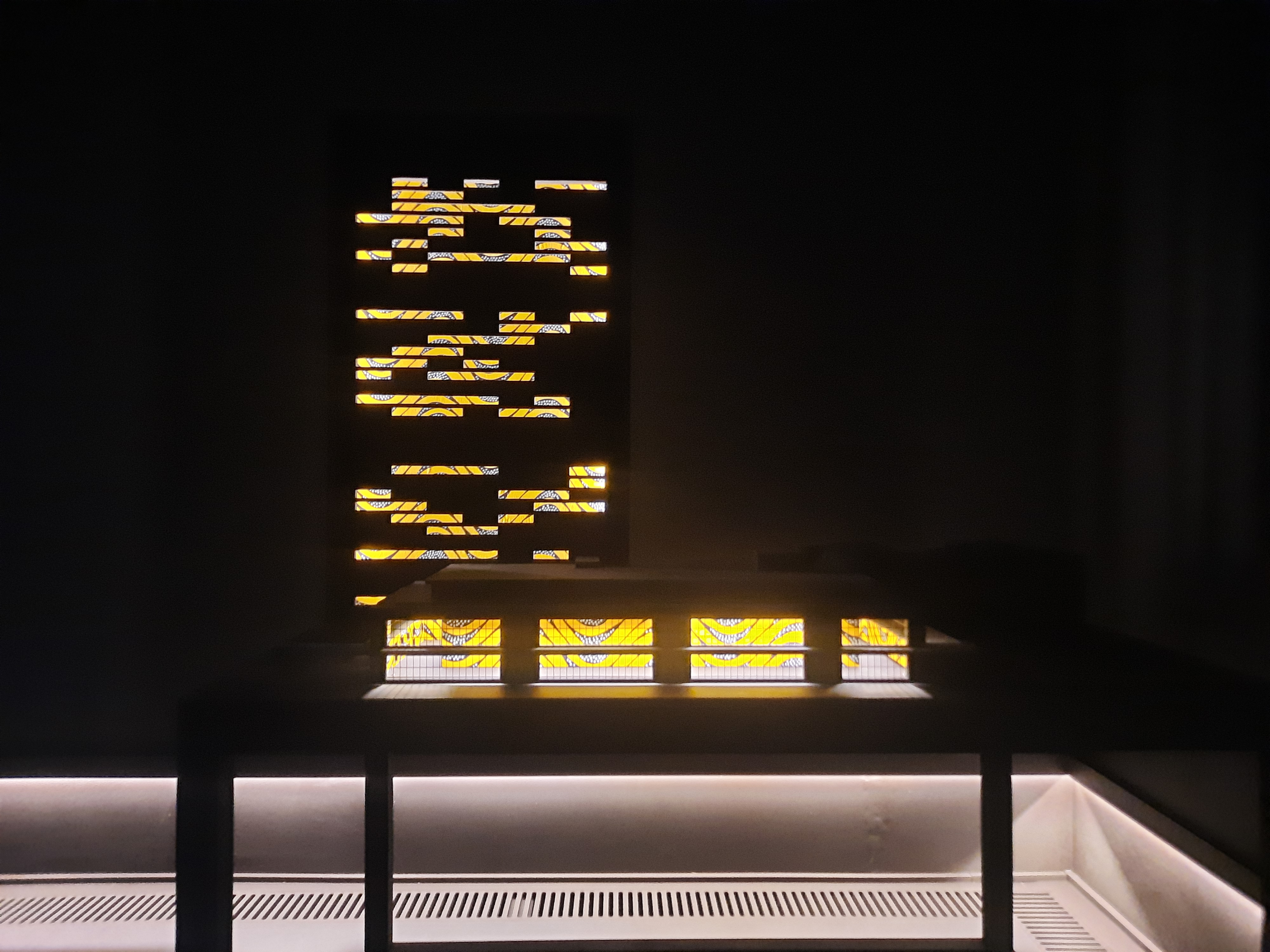
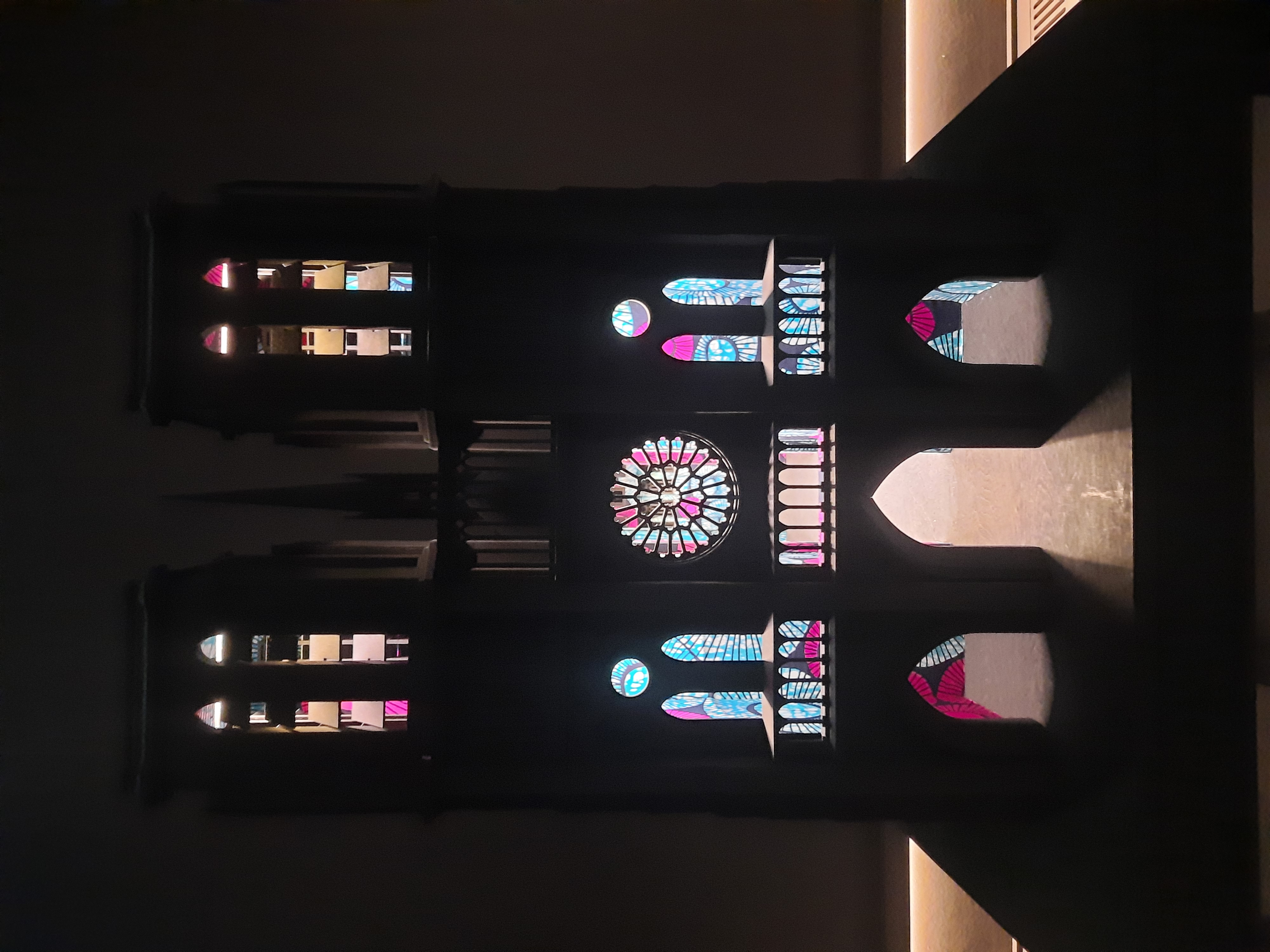
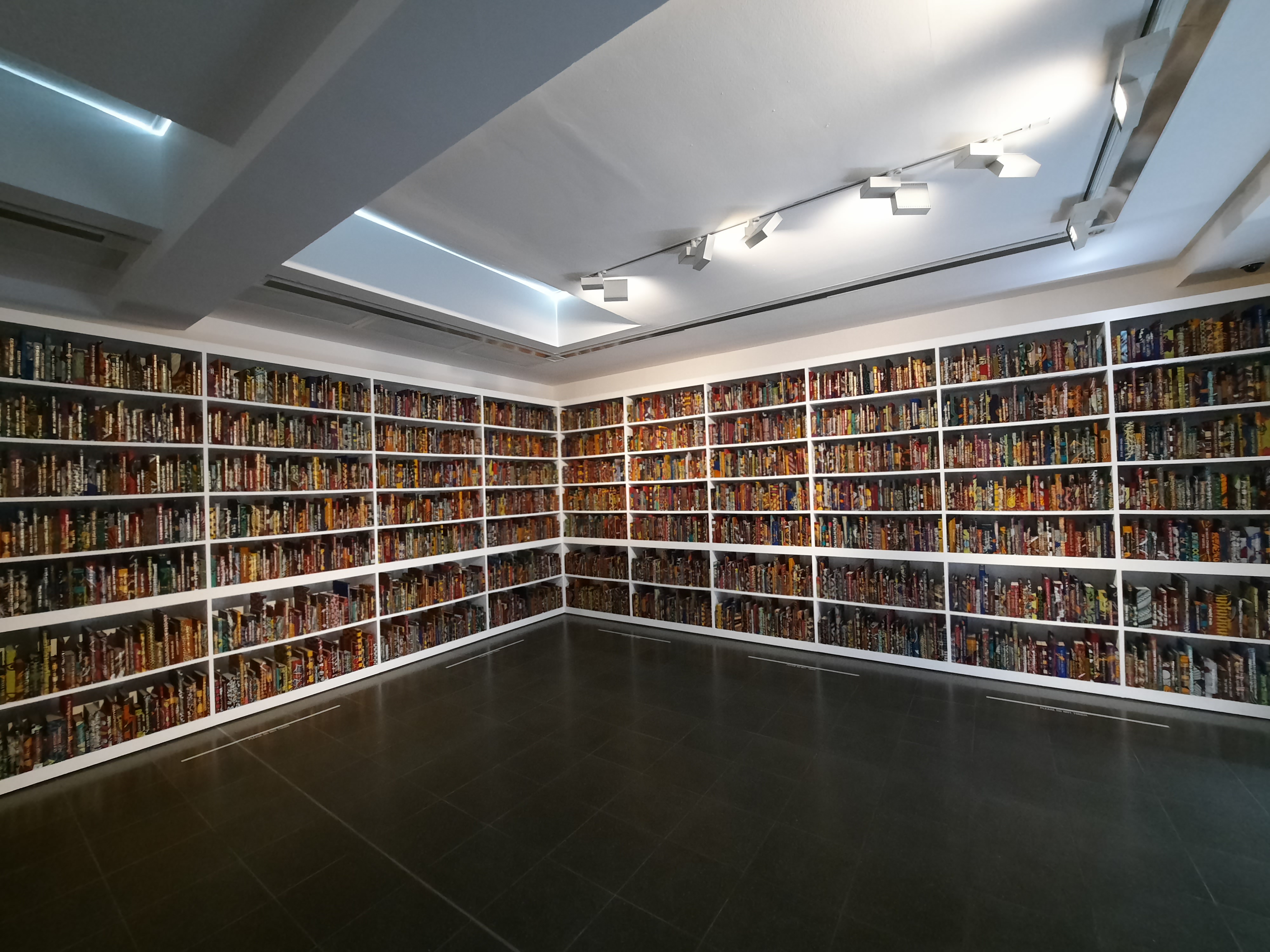
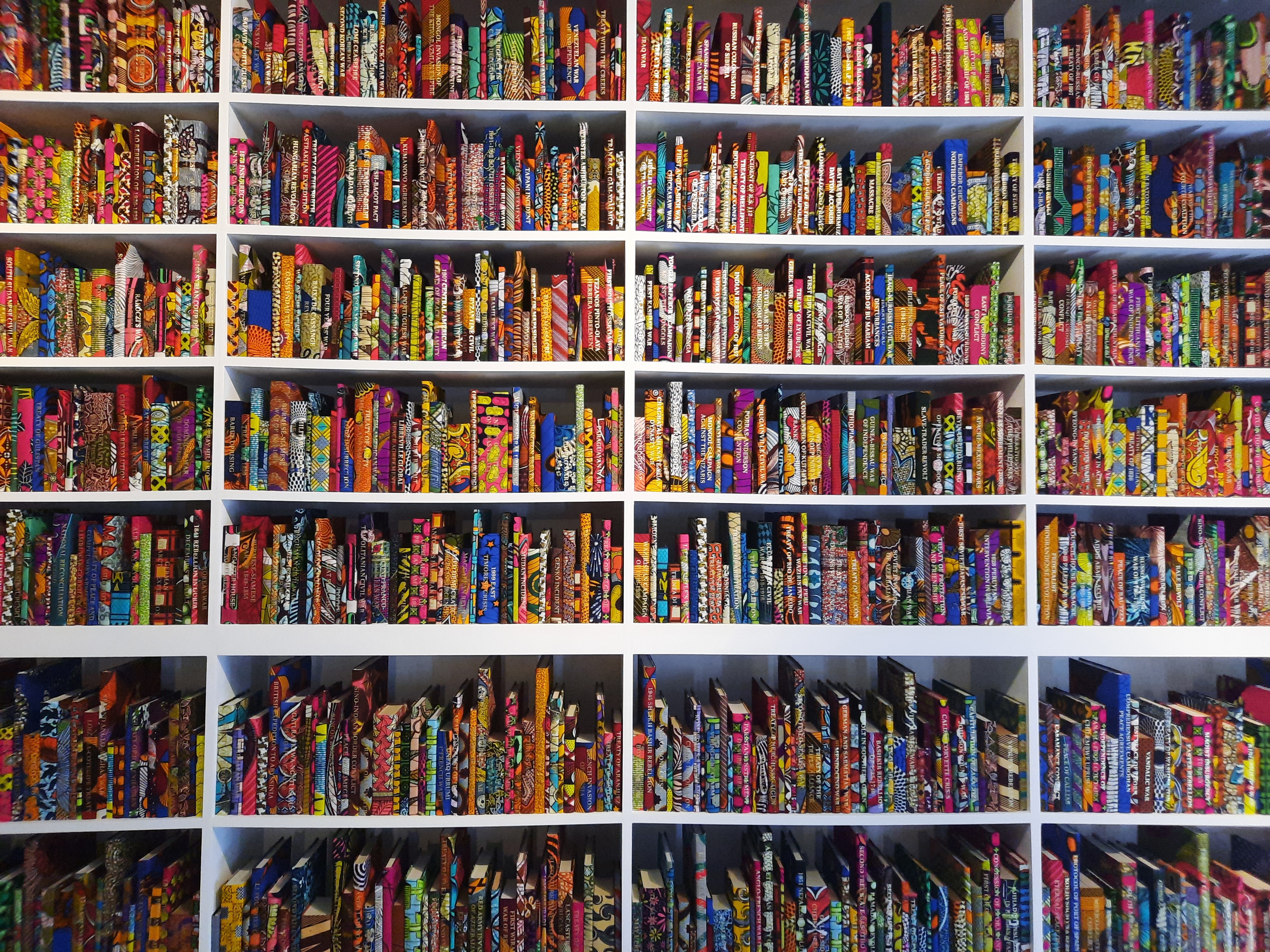
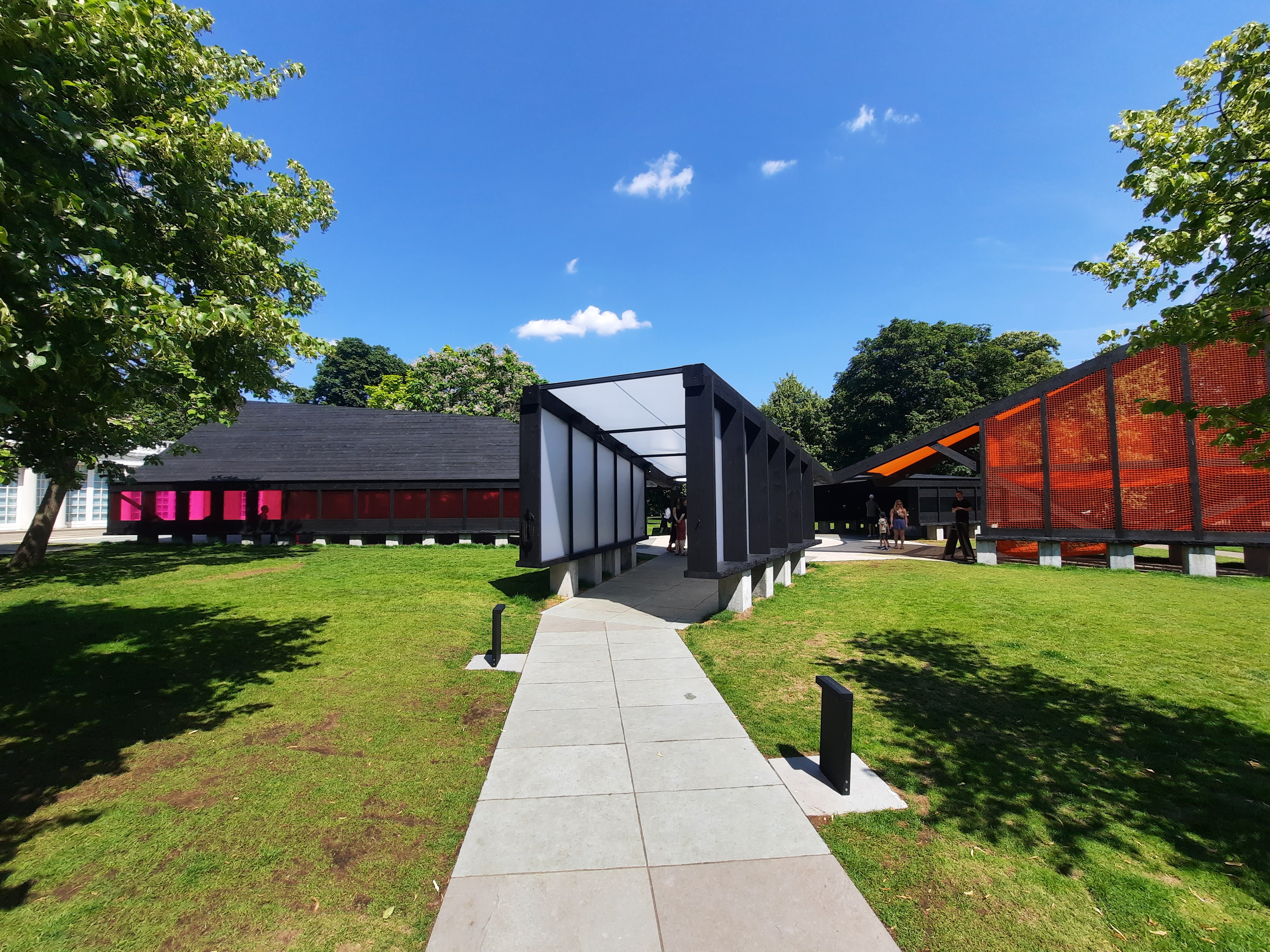
Wax Prints, But What More Besides?
The recognisable quality of Shonibare’s works is both a blessing and a curse. When I see one in exhibitions like this, it’s a welcome pop of colour. But although this is a relatively small exhibition, it began to feel as if it was business as usual – few new ideas or deviations from what has worked before.
This is partly the result of works from three series taking up the majority of the space. Firstly, there’s the Decolonised Structures series of statues covered in – you guessed it – wax print fabric designs. Statues of explorers and colonial administrators (up to and including Churchill and Queen Victoria) are recast in fibreglass and brought down to size and to earth. As an addition to the debate on statues and how to tell complex stories, I love it. The slight ambiguity of their identities behind the bright colours and patterns is also fascinating.
Then there’s Sanctuary City, a room of spaces that have been (or should have been) places of sanctuary, lit up and again covered inside with bright fabric patterns. The inclusion of the UK’s awful ship for asylum seekers is damning. Finally in terms of large-scale series there’s The War Library. Not a library you can browse, but shelves of books bound in wax print cotton, their titles referencing either wars or treaties. Initially quite jolly-looking, it’s overwhelming the more you think about it.
So that’s a lot of space for visually similar artworks. And the few prints and other framed works are often along the same lines, but not quite as strong. What I would have loved to see more of is Shonibare’s G.A.S. (Guest Artists Space). A Nigeria-based artist residency programme, there is a video explaining its origins and successes. But some examples of works by artists who have taken part would have been a nice inclusion.
Otherwise I thought this was a good overview of Shonibare’s work and style. Politically engaged, visually appealing, multi-media, with a cohesive look. Brand is everything, but I wanted just a little more variety to really make this exhibition a great one.
Salterton Arts Review’s rating: 3.5/5
Yinka Shonibare CBE: Suspended States on until 1 September 2024. Entry is free, and don’t forget to check out the 2024 Serpentine Pavilion while you’re there.

